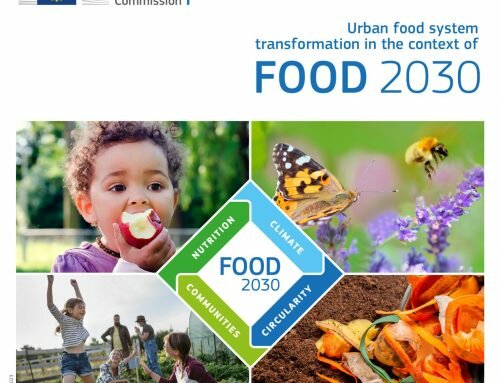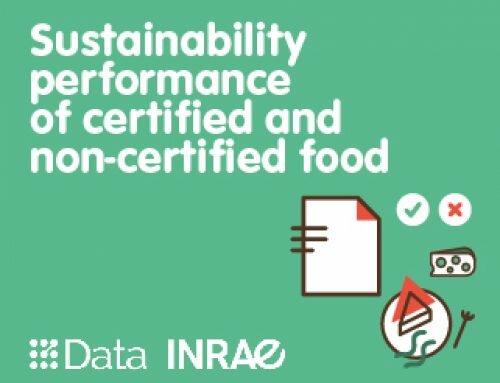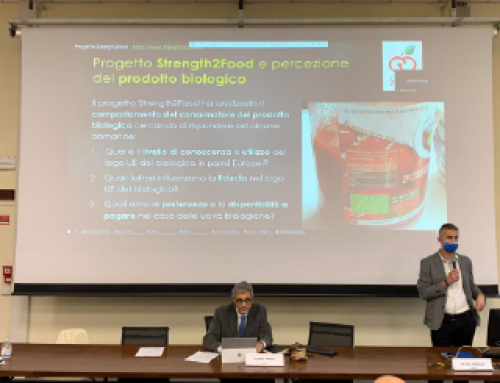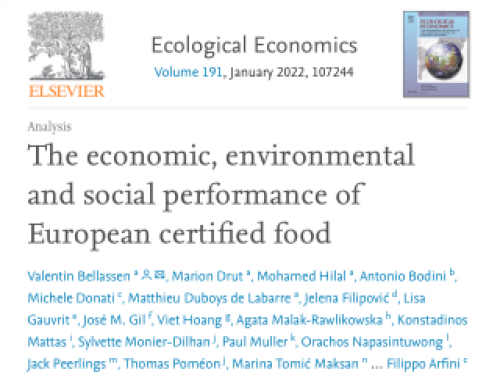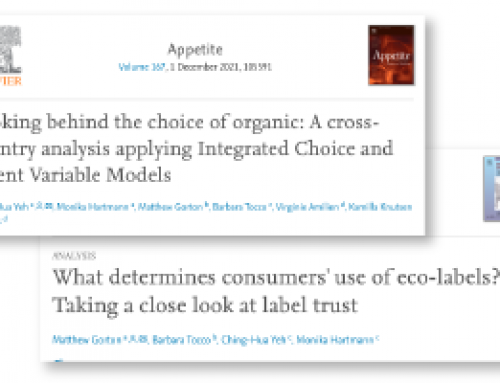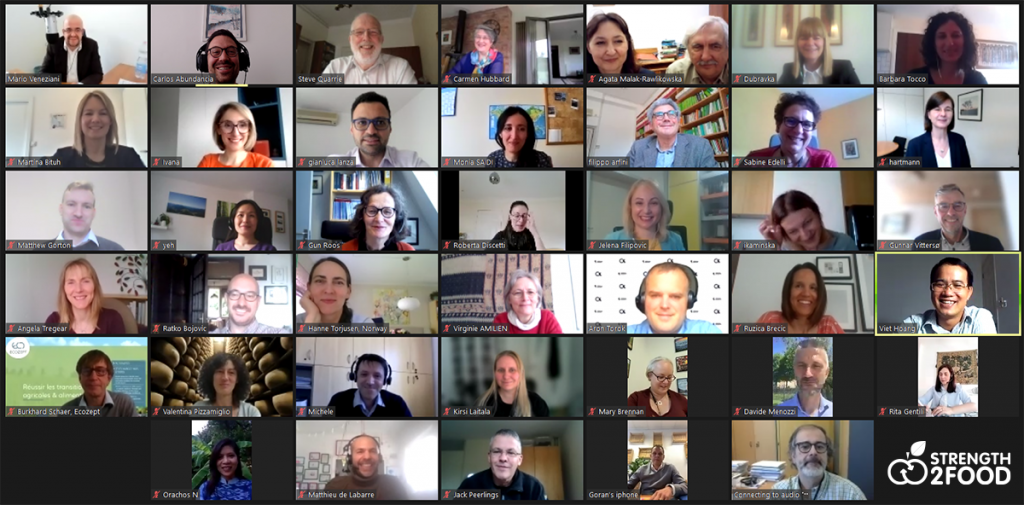
After five years of research, innovation and demonstration activities from leading organizations at pan-European level, the EU-funded project Strength2Food hosted on May 20 more than 300 stakeholders, including policy makers, practitioners, researchers, representatives of EU institutions, in the immersive digital event organised by the European Food Information Council (EUFIC).
The participants followed live presentations on research insights, achieved impacts and recommendations on how to improve current policies and practices around EU Food Quality Schemes (FQSs), Public Sector Food Procurement (PSFP) and Short Food Supply Chains (SFSCs), as well as joining interactive sessions around thematic areas, methodological insights and Horizo2020 knowledge-exchange.
The project’s coordinator Prof Matthew Gorton, from Newcastle University, opened the first session highlighting the key project results and recommendations gathered over the last five years. These include:
- Based on extensive qualitative and quantitative evidence, the project evaluated how the expansion of FQSs, higher quality food PSFP, and SFSCs leads to different economic, social and environmental impacts. Through the careful measurement of these outcomes, we establish how a greater focus on quality can benefit producers, communities and the environment.
- However, the expansion of markets for quality foods face challenges and partners have worked together to test strategies for overcoming common problems. For instance, school meals typically suffer from high levels of plate waste, which is often irrespective of the quality of dinners. Working with schools in Croatia we identify ways of reducing plate waste, through better layout, extended mealtimes, clever portion control and menu planning, as well as education.
- In co-operation with practitioners, we established pilot actions to find and implement solutions that have beneficial impacts. For instance, in collaboration with the project partner of the Ministry of Education, Science and Technological Development and following extensive research work with schools, parents and children, over 30,000 schoolchildren in Serbia are getting access to more nutritious school meals.
A digital exhibition space offered participants the chance to learn more about the demonstration pilot actions undertaken and the multiple tools and resources developed for different agri-food stakeholders. The digital platform also enabled attendees to expand their network and exchange knowledge during a virtual and dynamic coffee break introducing a network carousel, before the beginning of five parallel sessions:
- H2020 shared learning and innovative solutions for improving SFSCs
- Delphi Method as a research tool to develop policy recommendations
- Ethnographic research – methodologies and approaches
- Data improvements for sustainable Geographical Indications (GIs)
- Impact of EU FQS: taking stock and looking ahead
High-level speakers from the FAO and AREPO explored the next steps for policy and research agenda during a dynamic panel discussion with representatives from academia and practice from the Strength2Food project.
Finally, representatives from the European Commission’s DG-AGRI shared insights on the future policy agenda and illustrated the main policy initiatives being implemented under the Farm To Fork Strategy, which has recently been adopted by the EC to make food systems fair, healthy & environmental-friendly.
Not only did the Strength2Food final conference mark the end of the five-year Horizon 2020 EU-funded project, but it was also the perfect occasion to launch the Massive Online Open Course (MOOC) “Sustainable food choices: Key lessons from Quality Schemes, Public Procurement and Short Supply Chains” as part of the project. The MOOC aims to provide consumers and students with the tools they need to make more informed, healthy and sustainable food choices, not only for them and their families but also for the environment, the local economy and the society at large.
Despite being demonstrated that some foods pollute less, create better returns for farmers or benefit rural communities, it is not always easy to recognise them, nor to understand the sustainability of their social, economic, and environmental impact.
In this context, the MOOC will allow consumers and students to learn more about what may constitute a sustainable choice and understand why sustainability across all three dimensions (social, economic and environmental) is often difficult to achieve. They will also learn about important tools available to support sustainable choices, such as sustainability certifications and food quality schemes. Finally, they will learn that, from a sustainability perspective, not only what we buy, but also where we buy it, matters.
Our food choices can make a world of difference! Join the course here.


